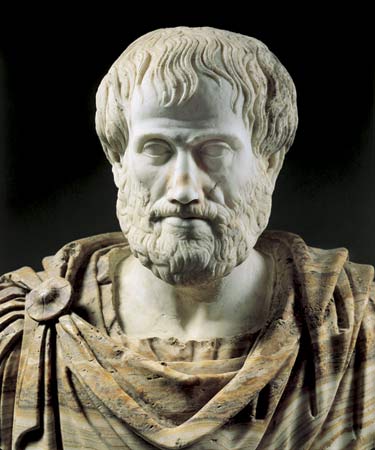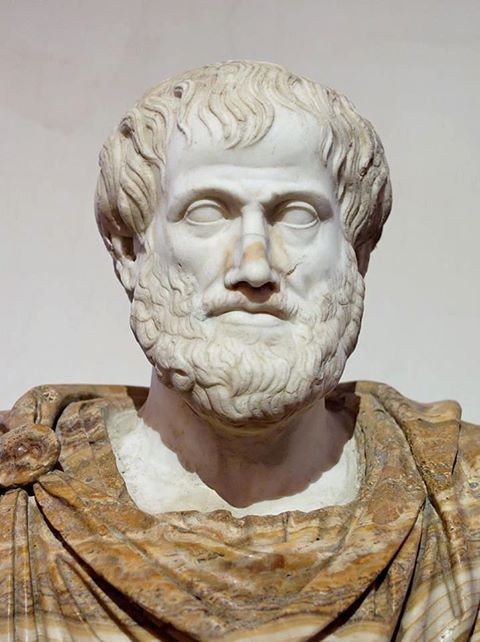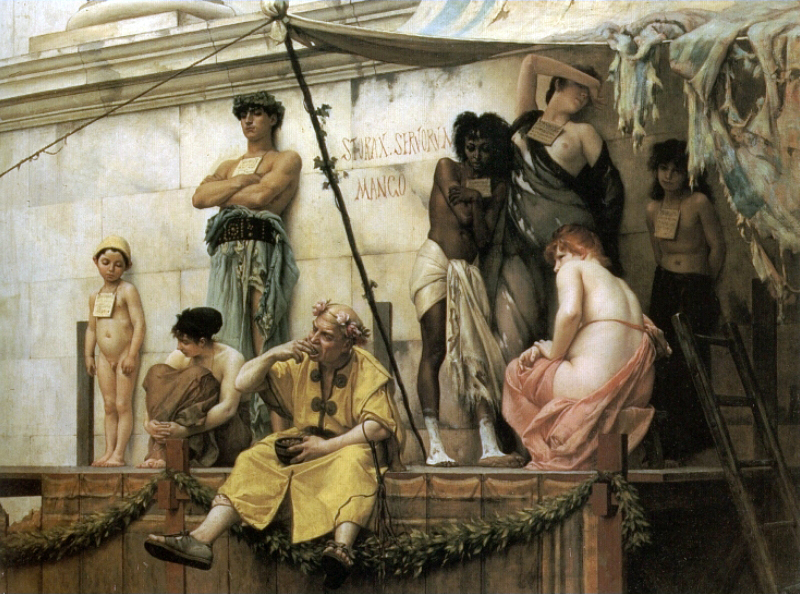We learn equally from those who were right as from those who were wrong. We cherry pick ancient ideas, forcing us to choose what we believe is morally and ethically correct. Other concepts, however, are cast aside with appropriate disgust.
 This is true for Aristotle, who enormously contributed to human knowledge and western thought, and more importantly laid the foundations for a way of thinking and approaching a problem. However our current society, it might be argued, only truly advanced once we started to question the man Dante called “the master of those who know.”
This is true for Aristotle, who enormously contributed to human knowledge and western thought, and more importantly laid the foundations for a way of thinking and approaching a problem. However our current society, it might be argued, only truly advanced once we started to question the man Dante called “the master of those who know.”This is particularly evident when the modern reader picks up Politics- Book I and bitterly digests it, spoiled by the centuries of personal liberation and autonomy. It is a treatise which states who should naturally rule and who with unfortunate circumstance is doomed to be ruled. It goes further to say this subjugation is both just and beneficial.
But we can forgive a man who postulated such beliefs over 2000 years ago, in arguably less enlightened times. We pardon Aristotle for viewing himself as sufficiently more knowledgeable than others and therefore just in reigning over them.
We can not condone, however, today’s rulers who continue such abhorrent beliefs.
His political posits start innocently enough. Man, Aristotle argues, is a political animal, as are the social swarms of bees and ants. It is only the human, however, who has the capacity of rational speech. Nature makes nothing pointlessly, so this unique attribute is for the political ends of man.
Aristotle continues that the city-state is the highest goal of community, because it has reached its perfected end and that it is a natural, though crafted, occurrence.
We start out as couples with the need to procreate. This in turn becomes a household, ruled by the eldest as king. Eventually, individual houses collect, choosing to co-exist for the benefits of trade. The village becomes a city-state, but only once it has achieved total self-sufficiency. This all proceeds naturally, and those who can survive beyond the town’s limits without anyone else is either “a beast or a god”. (1253b 30)
Within the society, says our late philosopher, you have the rulers and the ruled. Just as the soul and reason control the body, so too do those in charge of the community have the right to domineer over the rest. Only those with practical wisdom and virtue have the necessary characteristics to exercise control. This, according to Aristotle, is true at every level of human interaction, both intimate and national.
In begins in the household. Within this ‘whole’ micro-kingdom reside the following ‘parts’: the husband and the wife, the father and the child, and the master and the slave. In each situation there is, naturally, according to Aristotle, the one with control and the other who must obey.
Aristotle submits, “For ruling and being ruled are not only necessary, they are also beneficial, and some things are distinguished right from birth, some suited to rule and others to being ruled”. 1254a 21-22.
The reason why slaves are naturally meant to be ruled is because they are missing the deliberative part of the soul. This is evidenced, says Aristotle, by the fact that they are ruled. Women are fortunate enough to possess this crucial virtue, but lack the authority to use it. Children also have it, but it is not completely developed. Non-Greeks essentially fall into the ‘slave’ category. Consequently, everyone must be ruled by Free, Greek Citizen Men.
This domination, according to the philosopher who knows it all, is good for the slaves, women and children because it keeps them safe, just as a domesticated animal is more secure than its wild counterpart.
Many modern readers will balk at Aristotle’s claim of the right of men to rule over their wives and slaves. What then are we to make of the exponentially scaled up version of this idea? Aristotle provides an example here of how a slight mismeasurement of first principles can lead to dramatic, reductio ad absurdum consequences.
These guidelines as argued by Aristotle, also hold true at the level of city-state. In this larger arena, the rule is administered by Free men over other citizens. The most intelligent and capable reserve the honor of telling the others what to do. In cases where they are equal, they take turns.
The premise then is that some men have the inherent right to rule over others because they know what is “best for them”. It separates those who know what is good and bad from others who are supposedly deficient in this knowledge. Rather than allowing each individual the right to choose for themselves what course of action they will take, other – according to Aristotle – better people will tell them what they should do.
Something, unfortunately, we still hear politicians say today.
In every major social debate, there are some who believe that they know best and therefore have the right to tell others what to do. This presupposes that the rest are deficient in virtue, just as slaves, women and children were in Aristotle’s day. Maybe, in the end, the autonomy and liberation Aristotle claimed for some should be extended to all.
—-
“Aristotle’s Virtue For Some” was written by Anya Leonard











4 comments
Good post.
Exactly why Christianity was such a shock.
“There is neither Jew nor Greek, slave nor free, male nor female, for you are all one in Christ Jesus.”
Revolutionary words.
Great explanation of Aristotle’s Politics. His ideas about slavery are based in part on the presuppositions of Homer, who stated in the Odyssey that “as soon as the yoke of slavery claps down on a man’s shoulders, he loses half his virtue.” Thomas Jefferson even quotes this in his Query 14 of the Notes on the State of Virginia. These cheerfully repugnant views found a home in the USA until after the Civil War.
Thucydides warns us that a pure “Demos” cannot compete against a Society
or Army ordered and commanded by experts. The great American experiment
in Republican Democracy is collapsing upon itself.
Are we not “economic slaves” for the most part. We must do what our “Bosses”
tell us to do or we our quickly out of a job and soon living on the streets.
There is something fundamentally different in how women, on the whole, approach
life and how men approach life.
Aristotle had a good point, his prejudices aside. Clearly some people are “better” at ruling than others, and better for the ruled than others. A society/civilization lucky enough to have some sort of democracy needs to decide what “better” means to them and create the method to elect those rulers that ideally somehow expose demagogues, self seeking tyrants and the like but elects the truly virtuous and capable to lead them. Arguably and sadly this has happened very few times in human history and almost certainly more by luck than any system per se. I wish we could figure it out!
Our apologies, you must be logged in to post a comment.